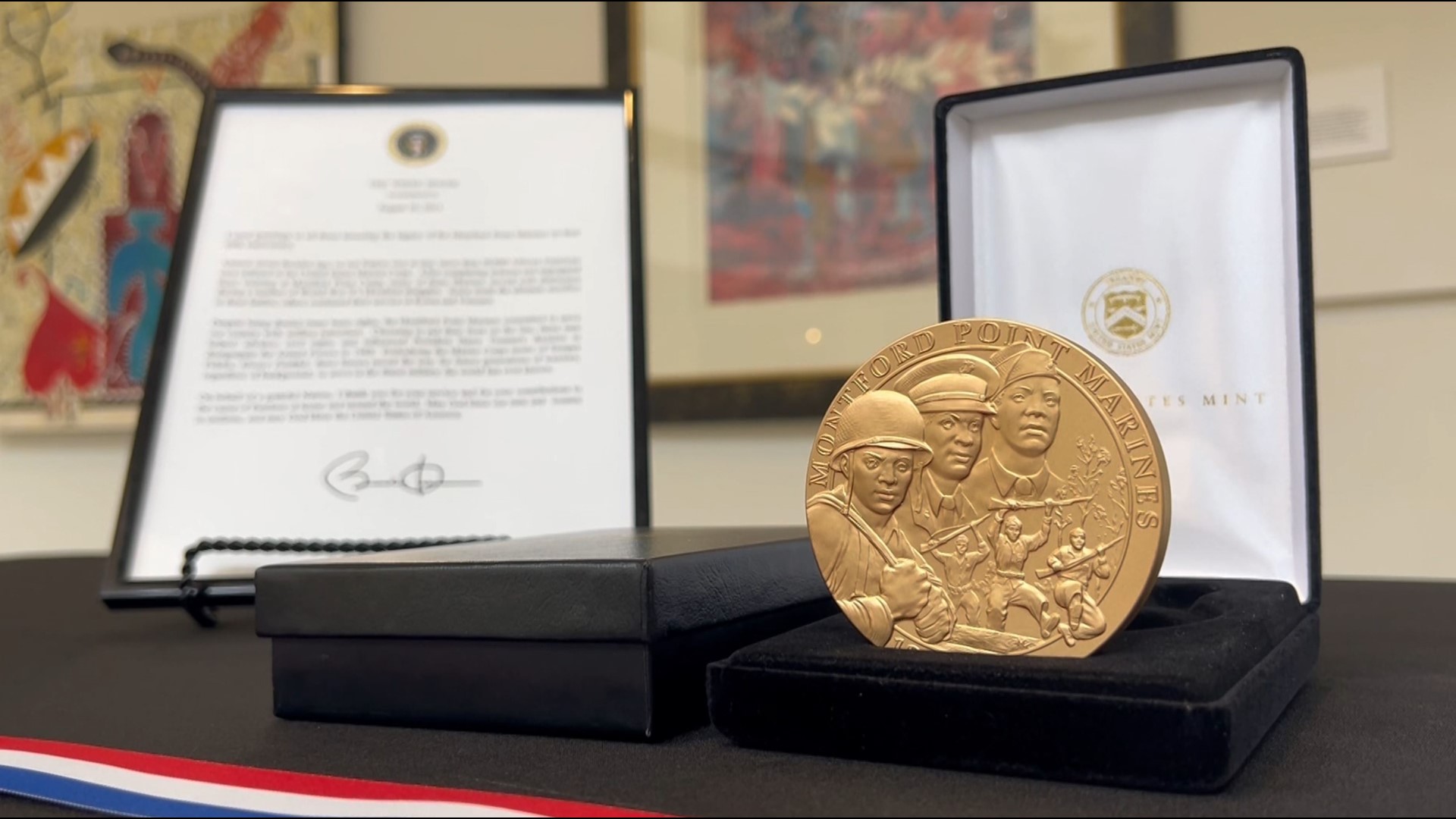MACON, Ga. — On Friday, the Tubman Museum honored local veterans who served our country at their Veterans Day ceremony.
Deceased veteran K.C. Warner, who was an original Montfort Point Marine from Cochran, was awarded a congressional gold medal honoring their legacy.
13WMAZ spoke with his loved ones on why recognition is more important now than ever.
"Well I'm proud to say that my great uncle K.C. Warner served as an original Montford Point Marine, and I'm proud, and I learned later in life as far as his sacrifices and contributions that he made," said his great niece.
Despite being denied many basic rights, the Montford Point Marines committed to serving our country with selfless patriotism.
They helped advance civil rights and influenced president Harry Truman's decision to desegregate the armed forces in 1948.
In 1941, President Franklin D. Roosevelt banned race-based exclusion from the military, thus opening the door for African Americans to join the Marines.
Now, over 80 years later, the Tubman Museum is opening an exhibit to honor the Montford Point Marines for their service and bravery in ensuring all Americans have the chance to serve their country.
Some of these Marines have Central Georgia ties, such as Frank Johnson, who the Frank Johnson Recreation Center on Mercer University Drive is named after.
In the 40s, the United States government needed more men to serve in WWII and hiring discrimination on the basis of race kept many willing and able recruits from joining.
Executive Order 8802 stated that all men had to be admitted, but it did not outlaw segregated units.
Between 1942 and 1949, approximately 20,000 African-American men completed recruit training and became known as the Montford Point Marines.
Black recruits from across the county arrived at Montford Point, North Carolina, for training about five miles from all-white Camp Lejeune, near Jacksonville, N.C.
Though the presence of black drill instructors and other officials at camp helped temper racial prejudice within Montford Point, when the men left camp, their experiences were very different.
They found restaurants that would not serve them, and they sometimes needed the help of several white Marines to get a city bus and drive them to camp when they discovered white bus drivers wouldn't stop to pick them up.
The Marines also discovered that Black Marines were not permitted for combat.
They were only authorized to deliver ammunition and other supplies to combat troops and later to evacuate the wounded from the front lines.
Eventually, some recruits would fight on several of the bloodiest beaches of WWII, from Iwo Jima and Okinawa to Peleliu and Saipan.
This proved to the world what the men of the Montford Marines already knew: they were equal, ready and capable of joining the fight alongside their fellow Marines.
After the war, many of these men were discharged, and only a few were allowed to stay in the Marines, still in segregated units.
Finally, in 1948, President Harry Truman signed Executive Order 9981, which moved to abandon segregation as a federal policy and required the desegregation of the entire military.
In 2012, President Barack Obama signed legislation awarding them the Congressional Gold Medal, and these men finally took their rightful place in the memory of history.

